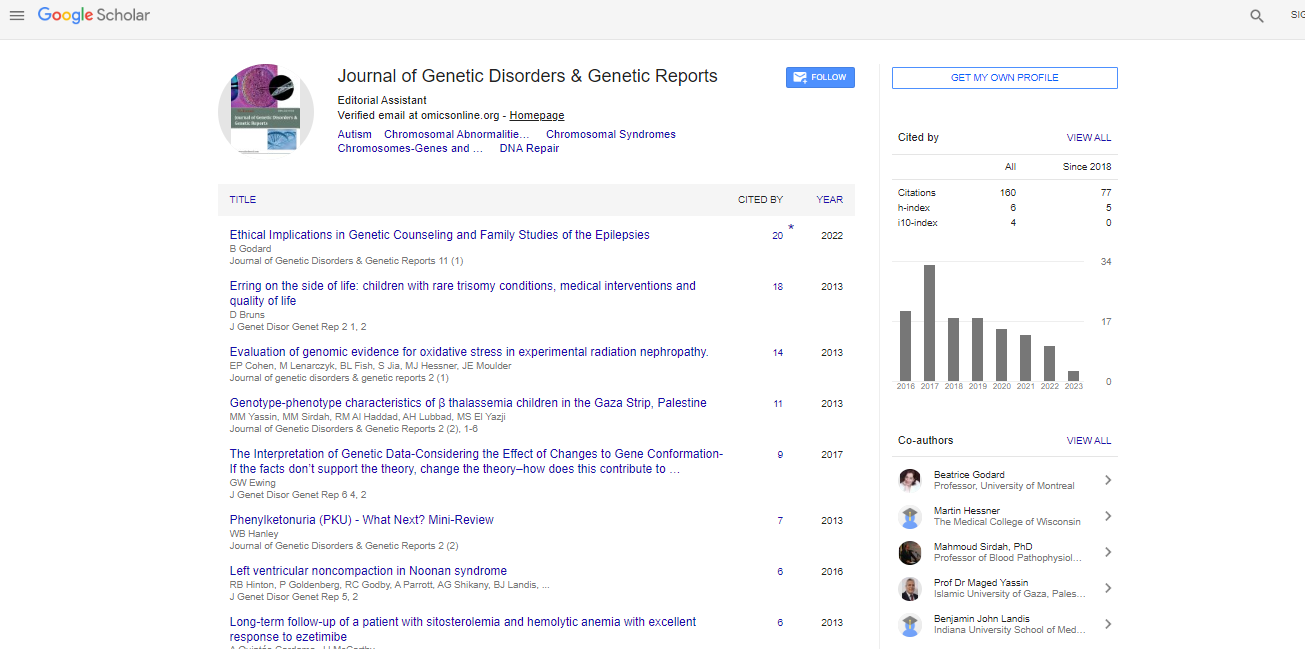Case Report, J Genet Disor Genet Rep Vol: 6 Issue: 1
Neurocognitive Functioning in a Young Female with Weaver Syndrome
| Wise JM*, Cooper A, Crenshaw ML and Katzenstein JM | |
| Johns Hopkins All Children’s Hospital, St. Petersburg, Florida | |
| Corresponding author : Jillian M Wise, PhD Johns Hopkins All Children’s Hospital, Child Development and Rehabilitation Center, 880 Sixth Street South, Suite 420, Saint Petersburg, Florida 33701, USA Tel: 727-767-7445 E-mail: jwise23@jhmi.edu |
|
| Received: December 10, 2016 Accepted: December 31, 2016 Published: January 04, 2017 | |
| Citation: Wise JM, Cooper A, Crenshaw ML, Katzenstein JM (2017) Neurocognitive Functioning in a Young Female with Weaver Syndrome. J Genet Disor Genet Rep 6:1. doi: 10.4172/2327-5790.1000148 |
Abstract
Weaver Syndrome is a low frequency syndrome caused by mutations in the EZH2 gene. Individuals with Weaver Syndrome have similar physical abnormalities as well as overall low cognitive functioning, motor deficits, and difficulties with independent living skills. This is a case study that presents the neurocognitive profile of n 11 year old female diagnosed with Weaver Syndrome. This was the child’s first neuropsychological evaluation following a long-standing history of concerns regarding her cognitive abilities, academic achievement, and independent living skills. Results of the evaluation revealed extremely low range cognitive functioning, as well as below age expectation performance across a majority of cognitive domains. While the child’s neurocognitive profile was similar to prior research regarding cognitive outcomes in children with Weaver Syndrome, additional research on the neurocognitive profile of children with Weaver Syndrome is indicated.
 Spanish
Spanish  Chinese
Chinese  Russian
Russian  German
German  French
French  Japanese
Japanese  Portuguese
Portuguese  Hindi
Hindi 



